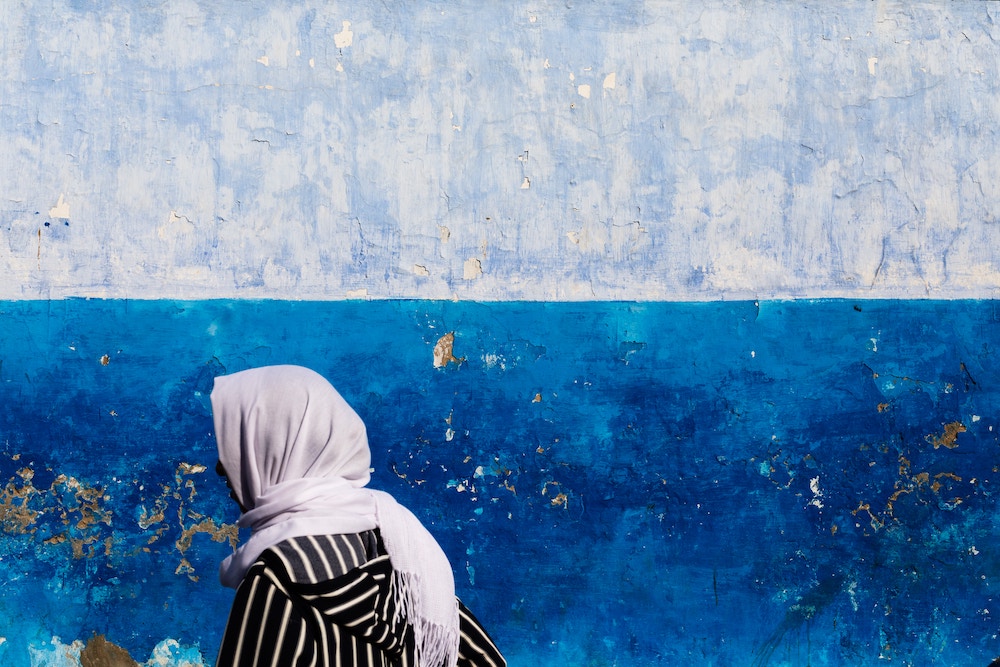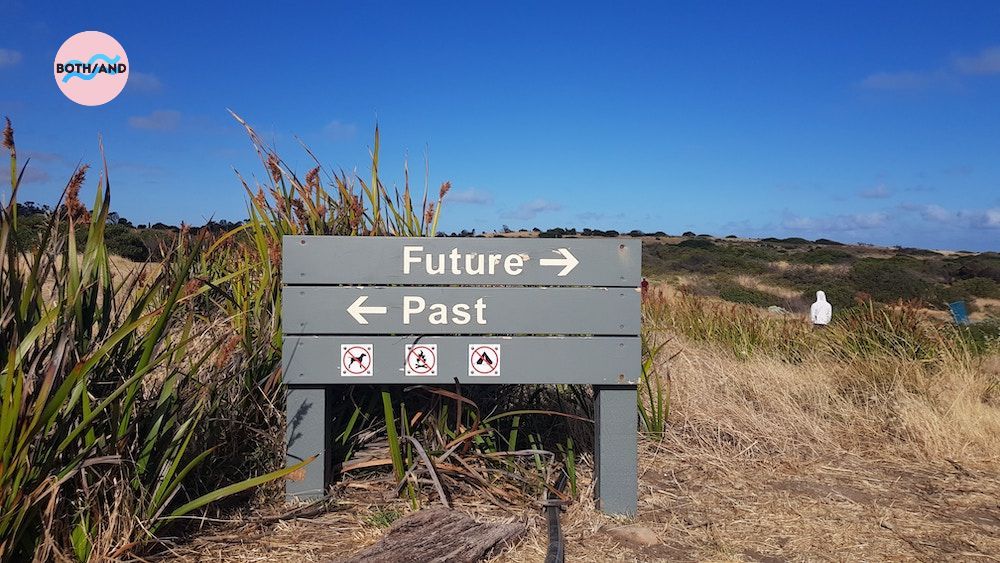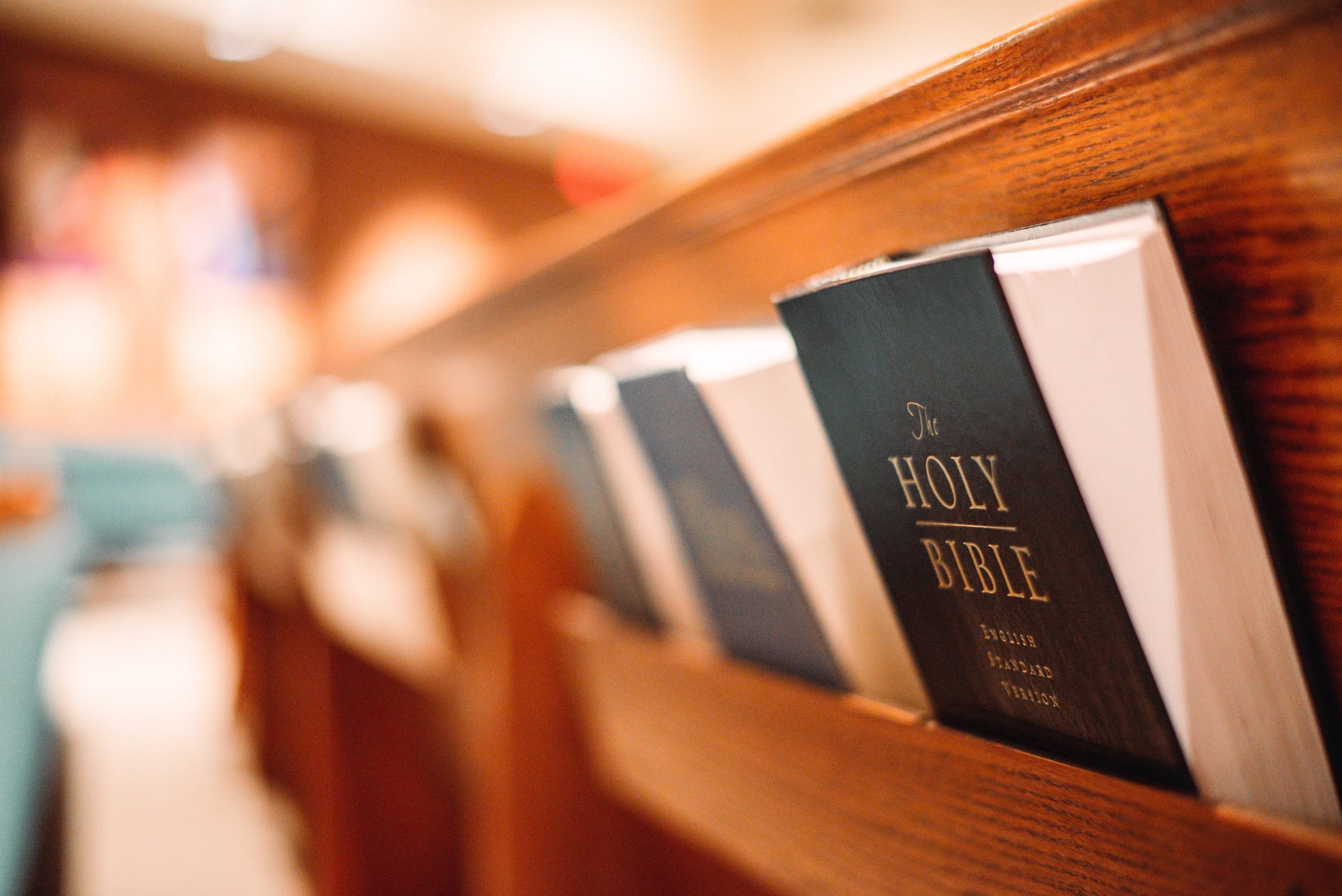interviews
Writing a Book is an Act of Prayer
Lamya H seeks to reconcile queerness with Islam in her memoir "Hijab Butch Blues"

Lamya H’s powerful memoir Hijab Butch Blues is an honest grappling with what it means to be queer, to be a devout hijabi Muslim person who resists gender normativity, to love faith and community. Seeking other queer women in Islam as a young person, H wonders if Maryam, whom no man has touched, is like her. She asks if Allah is a man or a woman and, dissatisfied with counsel from religious teachers, decides for herself: Allah is They. She confronts her fear of jinn, who in lore and anecdote are shapeshifters never to be trusted, yet who are too often conflated with brown men from her own community. Reading the story of Yusuf and the king’s stolen golden measuring cup forces H to confront her own withholding, how she unfairly tests others because she is afraid to lose them. Using the second person point-of-view, she asks Muhammad questions about belonging and betrayal.
We see her speed dating, pining after unavailable (often straight) women, praying in department store fitting rooms. We cheer at her first kiss with Liv. H will not choose between the imposed cultural dichotomies of queerness and faith, family and freedom, selfhood and community. She argues for complexity and nuance, especially around sexuality and gender constraints. She writes, “the only way I can get out of my bed and make it through the day is by wearing masculinity on my body,” and immediately follows this with how she holds dear her “feminist rage” and is “politically aligned with womanhood and yet hates inhabiting it.” H refuses to be reduced to a single self, when singularity risks falseness and queerness is fundamentally a multiplicity of selves.
Annie Liontas: What if our stories about being hurt are actually stories about healing?
Lamya H: As humans we’re programmed towards negativity bias and to think of stories in terms of pain without thinking of what comes after. The prevailing theme of the stories from the Quran, when I was growing up reading them in school, was always perseverance. There are these horrible things that happen to these prophets and these figures in the Quran, and they emerge victorious from them. But one of the things that I wanted to really think through in my book was, What happens after? Who is the person who emerges, what sort of trauma are you left with because of racism or homophobia or discrimination, or just something that has happened to you? How does this instance affect you, and who is the person that emerges? And how can you heal from that?
AL: I’m thinking of this in relation to Yusuf and Yunus, and how your patient and devout re-reading yields surprising and new understandings of the surahs. Leaving is not always giving up, sometimes it is protection. Abandonment can lead to love and forgiveness. Have such readings introduced into your life an unexpected expansiveness or grace?
LH: In the process of reading about a lot of these prophets, I found myself unexpectedly having a lot of empathy for them, which kind of surprised me. I’ve always been a little ornery about some of the stories of the prophets. I grew up thinking, I can’t believe that Yunus was this prophet and he left his people and he gets swallowed by a whale. That’s terrible punishment! But, talking about it with a friend really drew me into the story. We said, Wait, what if the whale isn’t punishment? What if it’s more for protection? Or like Moses—in the Quran, he comes off as a little bit arrogant. There’s this one story where he asks to see God and God is like, No, you can’t see me, but Moses insists. And when God tells Moses that he’s a prophet, Moses asks, Can I bring along my brother? As a young person, I thought, Wow, I can’t believe he pushes back against God like that. But in doing more research into his story, I discovered that Moses had a stutter. That knowledge changed how I thought about Moses. When I thought of him as someone who was really anxious and had a hard time connecting with people I had newfound empathy for him. That exercise of having empathy for someone in a story led me to have empathy towards a younger version of myself. I realized I was trying to figure things out, just like these messy, complicated prophets were.
AL: How do women in the Quran, especially Maryam, offer confirmation but also help you imagine your own path forward?
LH: I love the story of Maryam. What a fucking badass! She was essentially sent away to live by herself. How much patience and generosity she must have had for her situation and the people who sent her away? And then there’s a story where an angel comes to her as this handsome man, and she turns him away. She doesn’t want to talk to him. And for me, that story was such a moment of recognition. It was so beautiful to be able to see a story like this. At fourteen, when I first heard the story in Quran class, I was grappling with all of these feelings, too. I found myself so uninterested in boys, I found myself with this crush on a teacher at school. I don’t even know if I would have been able to call it that—a crush—let alone use words like gay or queer lesbian. I was suddenly able to see myself in the Quran, which was the book my life was structured around at that point because I was in Islamic school. I lived in this Muslim country, and the Quran was everywhere. I didn’t grow up reading a lot of books with queer protagonists or even protagonists who were people of color. And so to have that moment of recognition in a text – and the Quran at that – was powerful for me.
AL: What is it like to slow-read the Quran over a long period of time?
I was trying to figure things out, just like these messy, complicated prophets were.
LH: Honestly, it’s an ongoing process. We’re not done yet, even though my friend and I, when we started, said, We’re gonna crush this, we’re gonna get this done in six years. I think we’re going on year seven now, and we’re about two thirds of the way through. Honestly, it’s been so lovely because there are various layers to the experience. One layer is this text that we’re reading that we’ve both read before, and we’re unpacking it not just in terms of the traditional interpretations but also in terms of how we’ve been taught to question it or not question it. And then the other layer that’s been really lovely is seeing my friendship grow with this friend, and marking the various things that have happened in her life and mine. Getting to have the longevity reflected in a weekly phone call and the regularity of that. And even just being able to say, Oh, do you remember when you read the second surah of the Quran and this was happening in your life? It’s been a really cool way to mark time and friendship.
AL: Some of the most powerful sections in this book are about how you grapple with your faith in God. Specifically, you talk about growing up with a gendered understanding of Allah, who most see as Him, none see as She. You ultimately conceive of Allah as They. How has this understanding of Allah as nonbinary changed your relationship to your faith, yourself, the world?
LH: Recently, it’s become really popular to gender Goddess, which I find so interesting and so limiting in its own way, I know that people have really good arguments for it, where they’re basically like, Oh, we’re just like countering how much “He” has been used. But I actually find that less compelling than this idea of using words like non-binary and genderqueer for God. In some ways I’ve always thought of God as non-binary. But I think being able to put a word on it has been really important. The word “non-binary” wasn’t used very much when I was younger and thinking about gender. People used words like “butch” or “masc” or “genderqueer,” and I have so much love for those words—I have a lot of love in general for words that feel outdated but that carry so much history and so many layers. But to be able to use a word like non-binary for God has been really, really powerful for me because words shape not only language, but also the world. I’m someone who came to using the word non-binary for myself pretty late. I had used a lot of those other words for a long time. I really grappled with what it means to wear a hijab while identifying as non-binary; for a long time, I thought that if you aren’t materially facing the consequences of a word, can you really identify with it? So being able to use that word for God let me give myself permission to use that word for myself. I think it’s important to honor the parts of yourself that feel like they need to be put into words.
AL: You seem to write from a place that arises both from resolution and searching. I’m wondering for you, what is the gift of doubt? What is it like to be simultaneously “part of” and “apart from”?
Being in this intergenerational, diverse community helped me figure out that I didn’t have to be authentically gay or be authentically Muslim.
LH: Doubt is one of the most powerful things. It goes hand in hand with faith in ways that are very important. You essentially can’t have faith without doubt, because otherwise it would just be certainty. I think it’s underappreciated and I think it can be such a generative thing. It leads you to ask questions and it leads you to explore things that you wouldn’t have thought of. There’s this way in which people are scared of doubt and are scared that it takes away from faith. For me, doubt also goes hand in hand with writing and asking questions. Writing is a way to explore those things that arise from doubt or anger or something that feels like it’s sticking in my mind and I can’t let go of it. Writing feels like a way of getting at some of those resolutions. I think sometimes the beauty of doubt is that you can doubt your resolutions and really have them be dynamic and use the questioning as a way to lead a life that is intentional.
AL: So writing might be described as the practice of doubt?
LH: Absolutely.
AL: In “Jinn,” you write about being made into “other” by white people and the white supremacist infrastructure. Reading works by bell hooks and Audre Lorde, as you note in the piece, helps you understand the true nature of jinn and your relationship to them. How are telling these stories acts of resistance?
LH: I came to writing through the act of telling stories as a way to counter the narratives being lost. I used to tell stories all the time of just things that had happened to me. One time a friend said, You tell these stories and you are clearly upset and angry but that rage dissipates unless you do something about it. She suggested writing, so I started writing. What I appreciated about it is that it allows me to use the telling of stories as an act of resistance and also as an act of validating the anger. I think about Teju Cole’s tweet a lot: “Writing as writing. Writing as rioting. Writing as righting. On the best days, all three.” The act of storytelling is so deeply enmeshed in justice.
AL: You talk about legibility and the pressure to be “authentically gay,” which includes a mandate to come out to your family, an act incongruous to your experience and one you worry would hurt your parents. How did your queer Muslim community save you? How did it help you embrace a whole, complex self?
You essentially can’t have faith without doubt, because otherwise it would just be certainty.
LH: I don’t know who I would be without my queer Muslim community. Finding them has been one of the most beautiful life-changing experiences of my life. I found them at a point in my life when I was trying to figure out how to live, as one does in their twenties. I was grappling with normative Islam and normative ideas of right and wrong and sin. I was grappling with queerness as well, figuring out which parts felt reductively normative and which were prescribed by others as the “correct” way to be gay. We don’t necessarily have models for how to be queer. So to be around people who were resisting both of those categories and forging new ways to live was so powerful. Being in this super intergenerational, diverse community really helped me figure out that I didn’t have to be authentically gay or be authentically Muslim. I could figure out what those things meant to me and live my life in ways that were true to who I was.
AL: You’ve said you write because ideas are “entangled” in your head. You also allude to the role of pray in your life, such as when you are at the doctor’s office to complete necessary immigration forms. Has writing these essays and telling these stories been a kind of prayer for you?
LH: The part about this that has felt like prayer is the act of writing the book and having it go out in the world. It’s an aspiration of prayer that you get some sort of response back. So it’s been really cool to see the responses coming in from other queer folks, other Muslims, other queer Muslims. Not all of it has been positive, which is to be expected. But a lot of the responses to the act of putting the book out have been really lovely.
AL: What are you still seeking—might always seek—from your faith and your place in the world as a queer nonbinary Muslim?
LH: I’m still figuring out how to do this whole thing called life. To me, what feels important is intentionality and effort and trying. I’m a big trier. I think what I’m seeking from my faith is the ability to do that—to use some of the tools, like prayer, as pausing points to reflect on what I’ve done and what I want. What is rooted in justice, what’s not. The other place that I seek some of this from is community. One of the best things about community is accountability and having people around you who will tell you when you’ve fucked up. What I’m seeking from both my faith and community is the ability to live in a way that moves me towards the kind of world that I want to be in.









